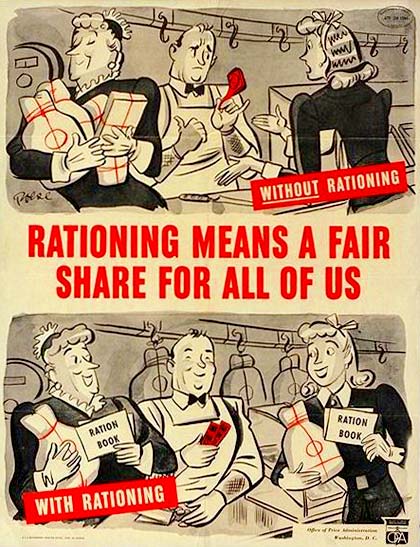An Experimental Study of Rationing
Diet might imply weight loss, good health, or a fad. Health sciences today vigourously yield interesting studies such as on the impact of eating just fruit --Steve Jobs tried that-- or being Vegan or following the Miami South Beach diet. But the science of diet and the impact on our body really begins in Second World War. An experiment, partly lead by a woman, lead to some surprising results.
Elsie Widdowson and her collaborator and friend, Robert McCance made significant improvements in the world of food and dietary management when rationing was necessary. Rationing, the controlled distribution of scarce sources, became essential during the Second World War because certain foods would become very difficult to come by. Food shortages were inevitable, so it was necessary for nutritionists to determine dietary requirements.
Widdowson, McCance, and a few other researchers were responsible for doing so. This was to be known as their famous ‘experimental study of rationing’. This involved having access to a rather limited amount of food. These scientists placed themselves on a very strict diet for three months, only allowing themselves to eat a limited intake of meat, cheese, and sugar or jam. They did allow themselves an unlimited quantity and potatoes and bread, since those items of food were easily accessible. Following the three months, Widdowson, McCance, and the other volunteers subjected themselves to various forms of straining physical activity in the Lake District. As a result, they concluded that this diet was indeed sufficient in order to maintain an appropriate amount of energy for the tasks they had been performing, with one exception: the amount of dairy that they permitting themselves to eat failed to provide them with enough calcium.

In order to monitor the amount of food that each family in took, each household in Britain was given a Ration Book. These books contained a variety of coupons. When purchasing food, the individual would present one of these coupons to a shopkeeper, who cut out or signed a paper, acknowledging that the coupon had been used. It proved very effective.
As a result of this improved diet, the rate of heart disease fell considerable, as the nation had become accustomed to healthier eating habits. Rationing was also beneficial in that it provided everyone with an equal food supply. No one had more than anyone else. People with an abundance of food were no longer permitted to over-eat, while individuals who did not have enough were provided with the necessary diet. As far as food was concerned, everyone was on the same level.
It is hard to imagine such dietary restrictions in world of ubiquitous vending machings, increased obesity --which has resulted in an explosion of diabetics-- and a world in which over 30% (David Suzuki Foundation) of food is thrown away. We like to point to the lessons of the Second World War like the terror of totalitarianism, horror of the holocaust, and destruction modern warfare. But there are more just these lessons from this important period.

Comments
No comments posted yet.
You have to be registered and logged in in order to post comments!